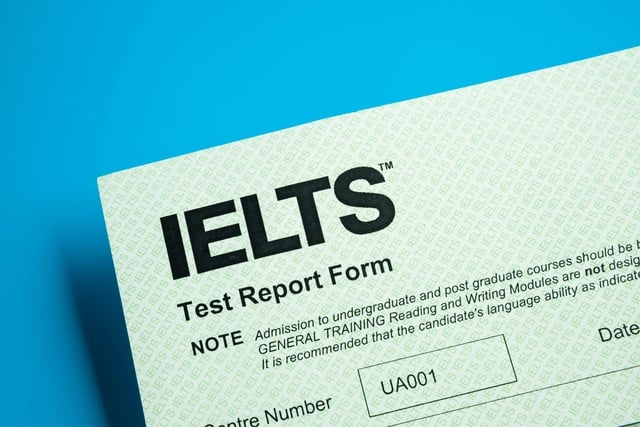
Bangladesh is cracking down on a ring that sells fake IELTS test questions and answers.
PHOTO: SHUTTERSTOCK
Spending tens of millions of dong to cheat on IELTS
Bangladeshi media has just reported that the police in Dhaka (Bangladesh) recently arrested two people involved in a ring selling IELTS test questions and answers that were advertised as "leaked before the exam date". They are Panna Poonam Howlader (Keya, 26 years old) and Md. Mamun Khan (37 years old), arrested after a police raid at a hotel located in the Banani residential area in Dhaka City.
According to the Daily Star , citing local police sources, the incident began with a complaint from a candidate named Md Nadit Hasan Rocky. This person had previously registered to study at an IELTS test center. Here, two subjects approached Rocky and many other candidates and promised to sell the "full set" of IELTS questions and answers leaked before the exam. Trusting him, Rocky agreed to pay the subjects 180,000 taka (39 million VND).
Rocky later learned that Mamun and Keya had charged each candidate between 100,000 and 300,000 taka (21-65 million VND) instead of a fixed price. The form these candidates registered for was the paper-based IELTS test.
On September 5, Rocky, his friend Tabibul Islam, and several other candidates met the suspects at a hotel to hand over the money. That evening, they received several documents that the suspects claimed were IELTS test questions and answers. However, when entering the exam room, Rocky discovered that only a few questions matched the documents he had received. So after the exam, Rocky returned to the hotel to request a refund, but the suspects not only went back on their word but also threatened the candidates.
Angered by this behavior, Rocky decided to file a complaint, leading to the arrest mentioned above. The police have now opened a case and said the investigation is still ongoing.
"Sophisticated line"
In addition to the above incident, the Daily Sun , a daily newspaper in Bangladesh, reported that this unit also conducted an independent investigation a few months ago and said that the two subjects who were just arrested were related to a "sophisticated network" specializing in selling IELTS test papers in this South Asian country, involving at least 5 other people. This unit said that it had full evidence including audio and video recordings to prove the existence of the network and had provided them to the police.
The Daily Sun newspaper described that the "leaked IELTS test" scam ring had close ties with a number of test preparation centers, and these units would broker candidates for the ring to receive commissions per person. Then, the ring members would gather both candidates and their relatives (responsible for keeping the money) at a location a day before the test, confiscate all electronic devices, and then take the candidates and their relatives to different hotels.
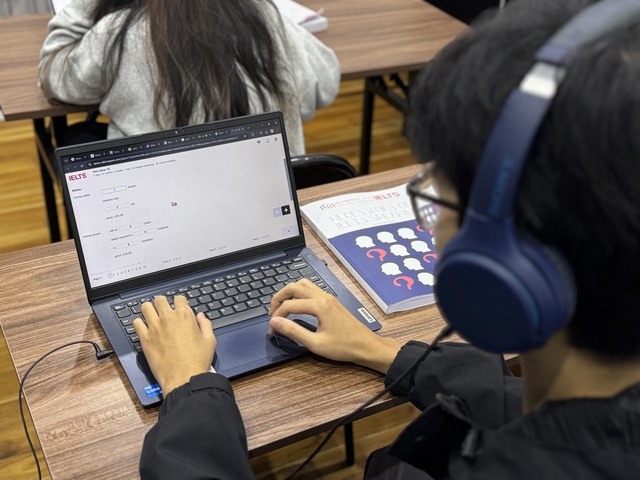
Candidates practice IELTS on computers at a center in Da Nang . Vietnam has also completely stopped the paper-based IELTS test and switched to computer-based testing.
PHOTO: NVCC
At 1:30, candidates will be divided into groups and checked with metal detectors before receiving the written test questions and answers. Candidates have 4.5 hours to memorize and the network also provides artificial intelligence (AI) tools to improve their performance. "Customers" continue to receive reading and listening test questions at 6:30 and 8:00, respectively, and then from 10:00 they will start being transported to the test sites that the network has registered on behalf of the candidates.
After the exam, candidates will be taken back to the hotel to meet their relatives to confirm the answers match before giving money, the Daily Sun newspaper reported on the operation of the "leaked IELTS test" scam ring in Bangladesh after more than 5 months of investigation. One of the important figures in this ring is Tarek Aziz, who is said to be "a contact specializing in selling leaked IELTS test papers" and once boasted that he has been operating successfully since 2019, according to Daily Sun.
This is not the first time that the South Asian region has been embroiled in a scandal over IELTS cheating. Previously, Pakistan and India have also reported cases of counterfeit IELTS certificates, with signs of allegedly leaking questions before the test date, or even taking exams for others. Meanwhile, another Central Asian country, Uzbekistan, announced in July that its IELTS partners had to suspend the paper-based IELTS test for "operational reasons".
In Asia, many countries such as Iran, Malaysia, Bangladesh and most recently Vietnam have completely stopped the paper-based IELTS test and switched to computer-based testing. Meanwhile, in Thailand, Indonesia, Japan, South Korea and Singapore, foreigners have been "banned" from registering for the paper-based IELTS test and can only take the test on computer. Most recently, the IELTS test in Hong Kong also applied similar regulations to mainland Chinese candidates.
Speaking to the SCMP in February, a British Council spokesperson said there was a “link between non-residents registering for IELTS on paper and cheating on test day.” “Allowing only legal residents to register for the test on paper significantly reduces this risk,” the spokesperson said, adding that this would soon become standard practice in most markets where IELTS is offered.
The British Council also stressed that the above regulation helps to increase the security of the IELTS exam and protect candidates from the "claws" of cheating behaviors.
IELTS (International English Language Testing System) is an international English language testing system recognized by thousands of governments , universities and businesses worldwide. The exam was launched in 1989 and is currently jointly owned by IDP, the British Council and Cambridge Assessment English. According to statistics from test organizers, over 2 million candidates take the IELTS exam worldwide every year.
Source: https://thanhnien.vn/bat-doi-tuong-lua-ban-de-ielts-bi-lo-truoc-ngay-thi-tai-mot-nuoc-chau-a-185250911191531167.htm


![[Photo] High-ranking delegation of the Russian State Duma visits President Ho Chi Minh's Mausoleum](https://vphoto.vietnam.vn/thumb/1200x675/vietnam/resource/IMAGE/2025/9/28/c6dfd505d79b460a93752e48882e8f7e)
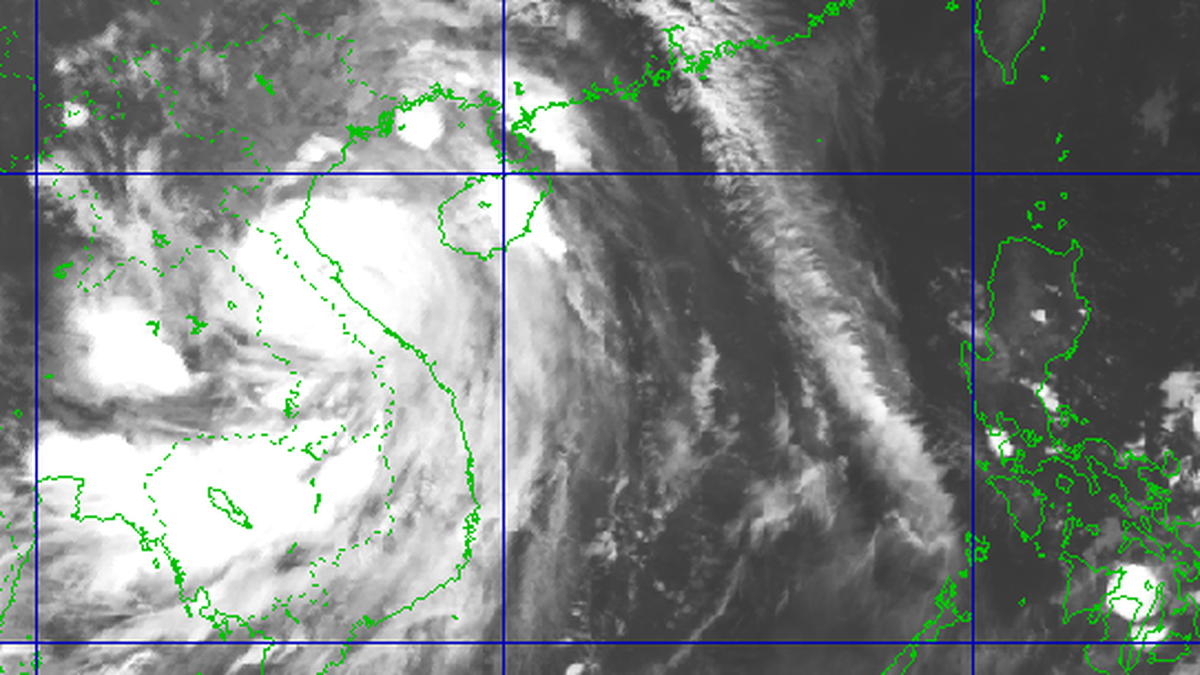
![[Photo] Joy on the new Phong Chau bridge](https://vphoto.vietnam.vn/thumb/1200x675/vietnam/resource/IMAGE/2025/9/28/b00322b29c8043fbb8b6844fdd6c78ea)
![[Photo] The 4th meeting of the Inter-Parliamentary Cooperation Committee between the National Assembly of Vietnam and the State Duma of Russia](https://vphoto.vietnam.vn/thumb/1200x675/vietnam/resource/IMAGE/2025/9/28/9f9e84a38675449aa9c08b391e153183)










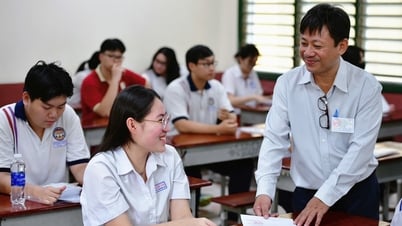












































































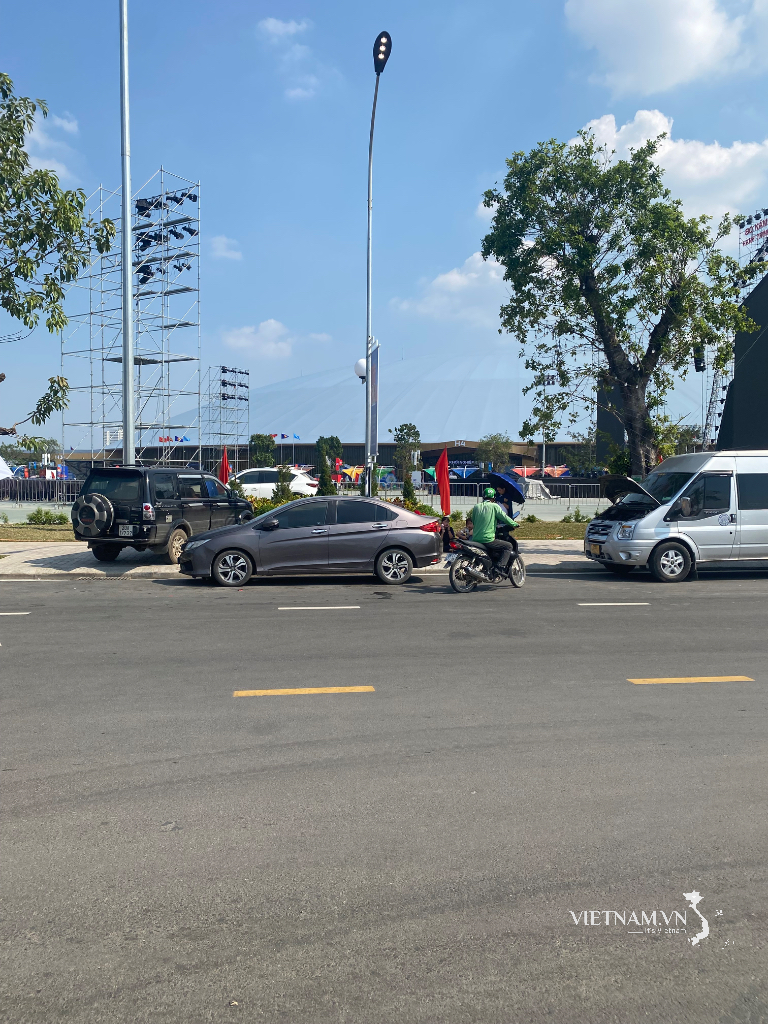

Comment (0)